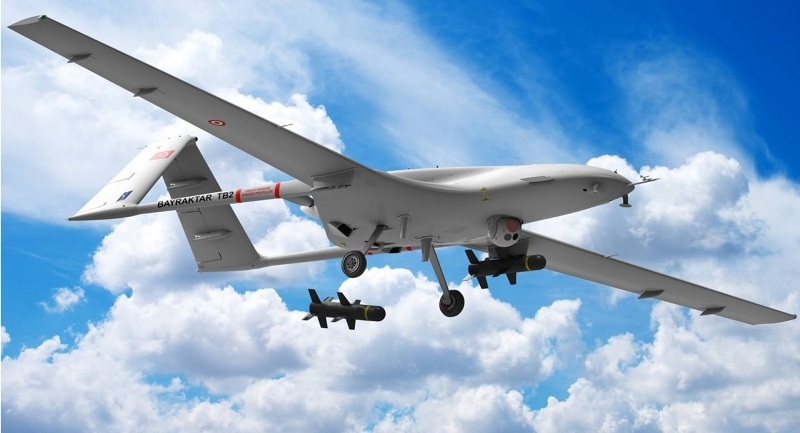Guwahati: The Indian security agencies, including the Indian Air Force (IAF), have intensified surveillance along the India-Bangladesh border after several Turkish-made Bayraktar TB2 Unmanned Aerial Vehicles (UAVs) have been reportedly detected flying close to Sohra and Shella in Meghalaya, Mizoram, and Tripura.
While Bangladesh authorities claim that the UAVs, operated by Bangladesh’s 67th Army, are deployed for intelligence, surveillance, and reconnaissance missions, Indian authorities are closely monitoring the situation.
The sightings of the drones have raised security concerns, particularly due to the worsening of ties between the two countries.
One of the UAVs, identified by its transponder code TB2R1071, was reportedly operated from the Tejgaon Airbase in Bangladesh.
“We are closely monitoring the situation and have increased our vigilance along the Bangladesh border to address evolving security challenges and ensure the safety and security of our borders,” a senior defence official said on condition of anonymity.
“We have the capability to track and shoot down any drone or any object that violates Indian airspace. There is a peace SoP (Standard Operating Procedure) which states that no aircraft flies 10 km near the border,” the defence official said.
However, sometimes both manned and unmanned aircraft enter into another country’s airspace. But aerial warning is issued, and fighter jets are scrambled,” he said.
The BSF stated that the sophisticated UAV can only be intercepted or its ID number detected with electronic technology such as radar.
The UAVs are also equipped for tactical operations with precision-guided munitions (PGMs), also known as smart bombs. These weapons use guidance systems to hit specific targets, reducing collateral damage.
Another Indian official termed the deployment of the Turkish-made drones along the Indian border as “mere posturing to appease Bangladeshi people in that country”, having a fluid situation that is getting out of the hand of the Muhammad Yunus-run government.
After the “monsoon revolution” that forced Sheikh Hasina to escape to India, the Indian security agencies have heightened vigilance along the 4,096 km-long border with Bangladesh.
Inspector General of BSF Meghalaya Frontier, Harbax Singh Dhillon, stated that the border situation with Bangladesh is currently stable. He added that minor issues with the Border Guard Bangladesh (BGB) have been resolved amicably, and communication channels between the two forces remain open.
ALSO READ: Northeast Trade and Investment Roadshow in Mumbai on Dec 16
“We are ready to face any eventuality. We are keeping a close watch on the border so that there is no infiltration from Bangladesh,” Dhillon said after being asked about the deployment of the UAVs along the India-Bangladesh border.















